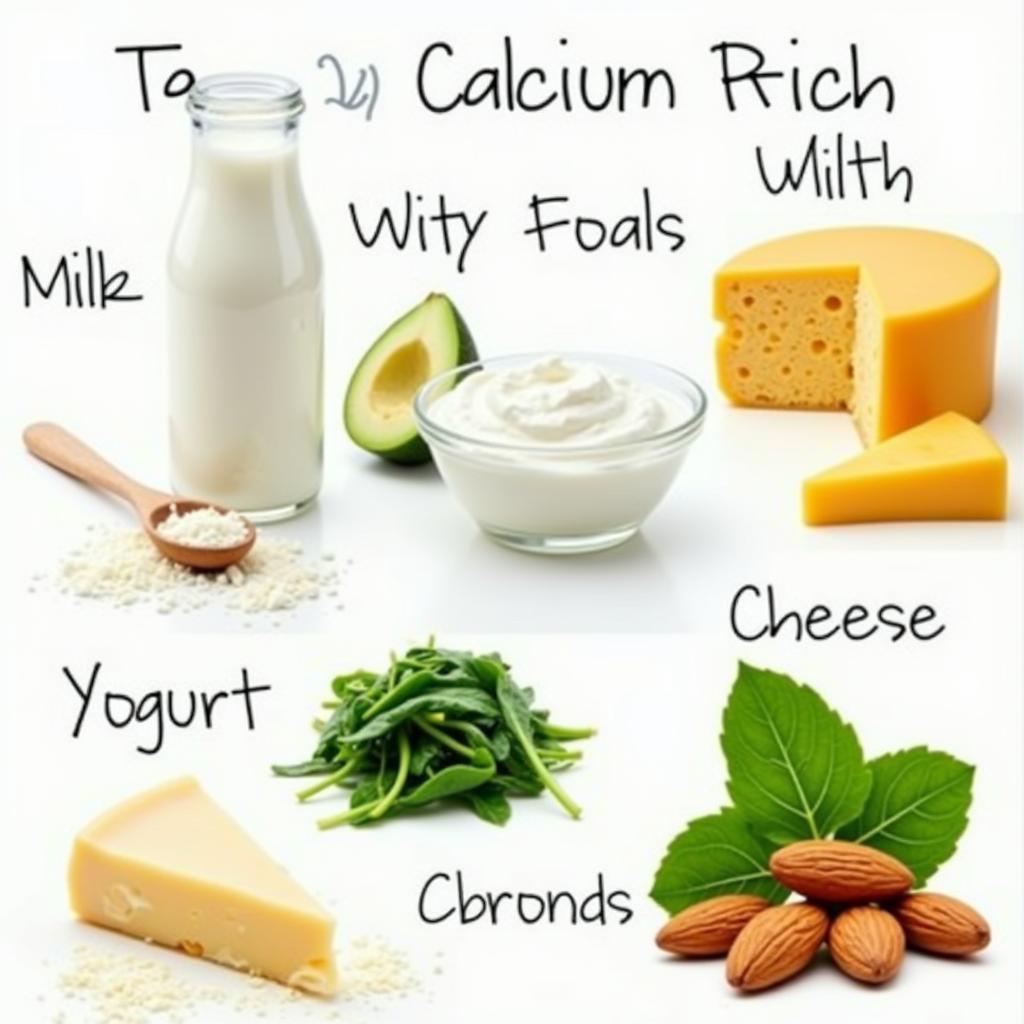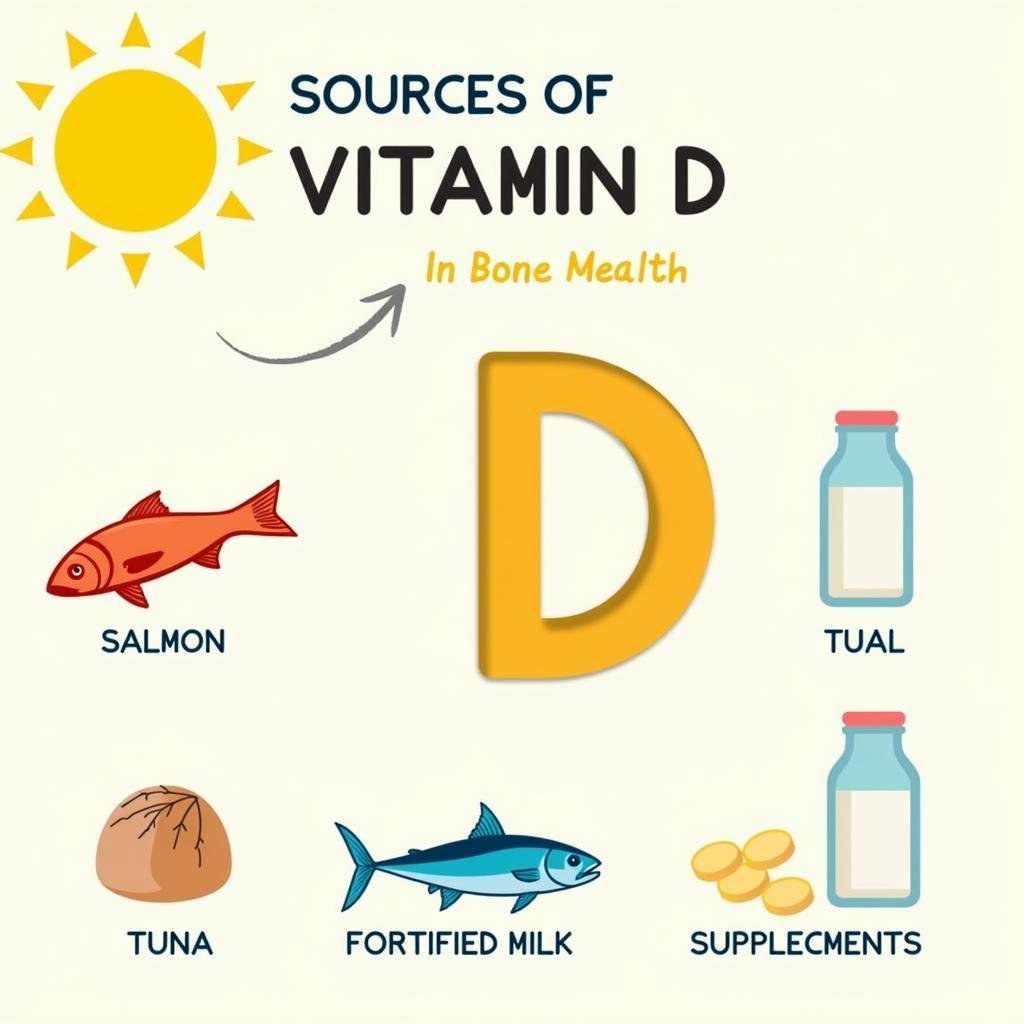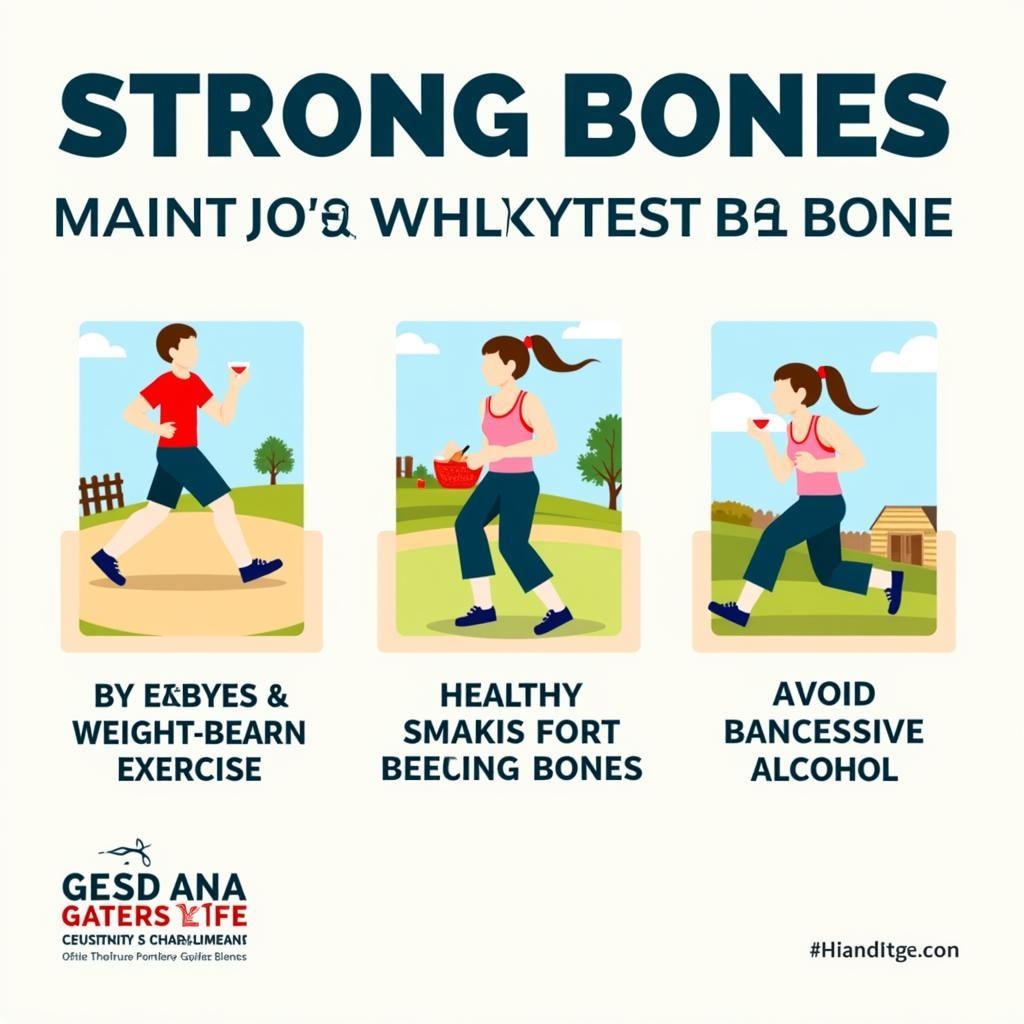Osteoporosis, a condition characterized by weakened bones, is a silent threat affecting millions worldwide. A balanced diet plays a crucial role in preventing and managing osteoporosis. Understanding what to eat can significantly impact bone health and overall well-being.
Essential Nutrients for Strong Bones
Calcium and vitamin D are the cornerstones of bone health. Calcium provides the building blocks for bone tissue, while vitamin D aids in calcium absorption. But it’s not just about these two superstars. Other essential nutrients like vitamin K, magnesium, phosphorus, and protein also play vital roles.
- Calcium: Found in dairy products, leafy greens, and fortified foods.
- Vitamin D: Obtained through sunlight exposure, fatty fish, and fortified foods.
- Vitamin K: Present in leafy greens, broccoli, and Brussels sprouts.
- Magnesium: Abundant in nuts, seeds, and whole grains.
- Phosphorus: Found in dairy products, meat, and fish.
- Protein: Essential for bone matrix formation, found in meat, fish, beans, and lentils.
 Calcium Rich Foods for Osteoporosis
Calcium Rich Foods for Osteoporosis
Building a Bone-Healthy Diet
Creating a diet that supports bone health involves incorporating a variety of nutrient-rich foods. Focus on whole, unprocessed foods and limit sugary drinks and processed snacks. Aim for a balanced intake of fruits, vegetables, lean protein, and healthy fats.
Calcium-Rich Food Choices
Dairy products are excellent sources of calcium. If you’re lactose intolerant, explore alternatives like fortified plant-based milk or calcium-set tofu. Leafy greens like kale and spinach, although containing less calcium than dairy, offer other valuable nutrients that contribute to bone health.
The Sunshine Vitamin: Vitamin D
While sunlight is the best source of vitamin D, it’s not always accessible. Including fatty fish like salmon and tuna in your diet can boost your vitamin D intake. Fortified foods like cereals and milk are also good options.
 Vitamin D Sources for Osteoporosis Prevention
Vitamin D Sources for Osteoporosis Prevention
Lifestyle Choices for Bone Health
Diet isn’t the only factor influencing bone health. Regular weight-bearing exercise, such as walking or jogging, stimulates bone growth and strengthens existing bone tissue. Avoiding smoking and excessive alcohol consumption is also crucial.
Exercise and Osteoporosis
Exercise plays a crucial role in maintaining bone density and reducing the risk of fractures. Weight-bearing exercises, such as brisk walking, jogging, and dancing, are particularly beneficial. Resistance training, like lifting weights, also helps strengthen bones.
“Regular exercise, coupled with a balanced diet, is the cornerstone of preventing and managing osteoporosis,” says Dr. Emily Carter, a leading expert in bone health at the National Osteoporosis Foundation.
Beyond Diet: Other Considerations for Osteoporosis
While diet and exercise are fundamental, other factors contribute to osteoporosis. Genetics, age, and certain medical conditions can increase your risk. Consulting with a healthcare professional is essential for personalized advice and treatment.
 Healthy Lifestyle Choices for Strong Bones
Healthy Lifestyle Choices for Strong Bones
“Addressing osteoporosis requires a holistic approach encompassing diet, exercise, and medical guidance,” adds Dr. Michael Roberts, a renowned rheumatologist at the University of California, San Francisco.
In conclusion, nourishing your bones through a balanced diet rich in calcium, vitamin D, and other essential nutrients is vital for preventing and managing osteoporosis. Combined with regular exercise and a healthy lifestyle, you can significantly improve your bone health and overall well-being. Remember to consult with a healthcare professional for personalized advice and guidance.
FAQs
- What is the recommended daily intake of calcium for adults?
- Can I get enough vitamin D from sunlight alone?
- Are there any supplements I should consider for bone health?
- What are some examples of weight-bearing exercises?
- How often should I get my bone density checked?
- What are the risk factors for osteoporosis?
- What are the treatment options for osteoporosis?
For further information on osteoporosis and bone health, explore our other articles: “Understanding Osteoporosis” and “The Role of Exercise in Bone Health.”
Need assistance planning your trip to Hanoi while focusing on your health? Contact us at Phone Number: 0372960696, Email: TRAVELCAR[email protected] or visit our office at 260 Cau Giay, Hanoi. We offer 16-seater, 29-seater, and 45-seater vehicle rentals for airport transfers, sightseeing tours, and other travel needs. Our customer service team is available 24/7.

